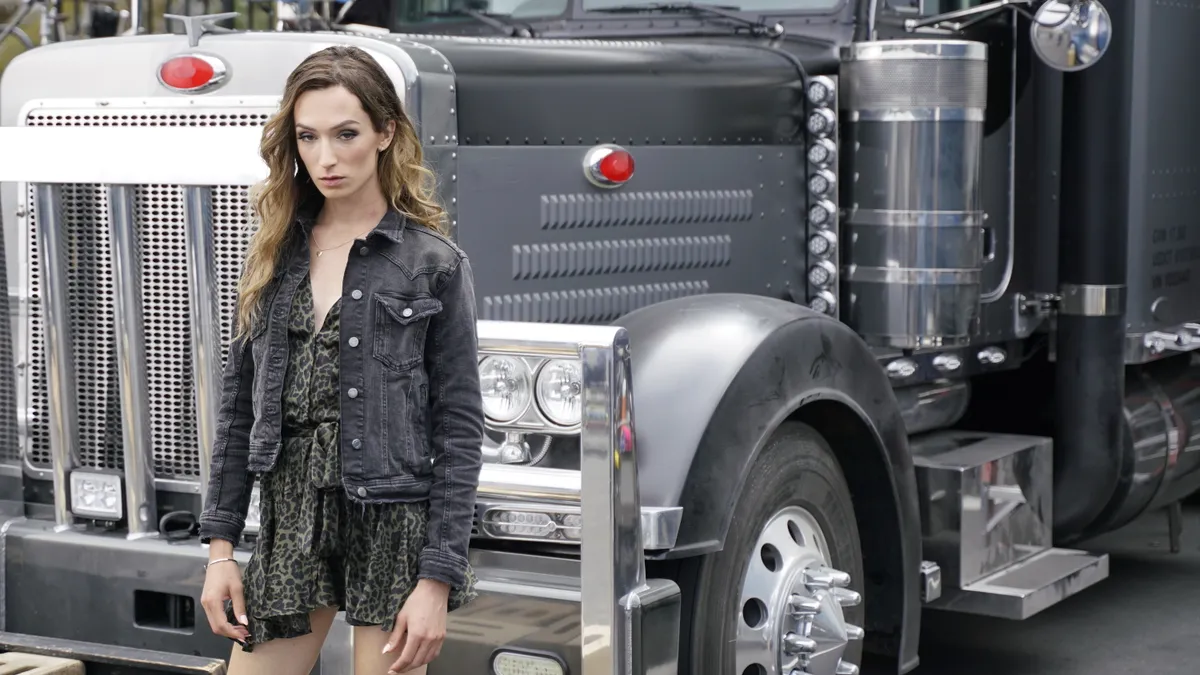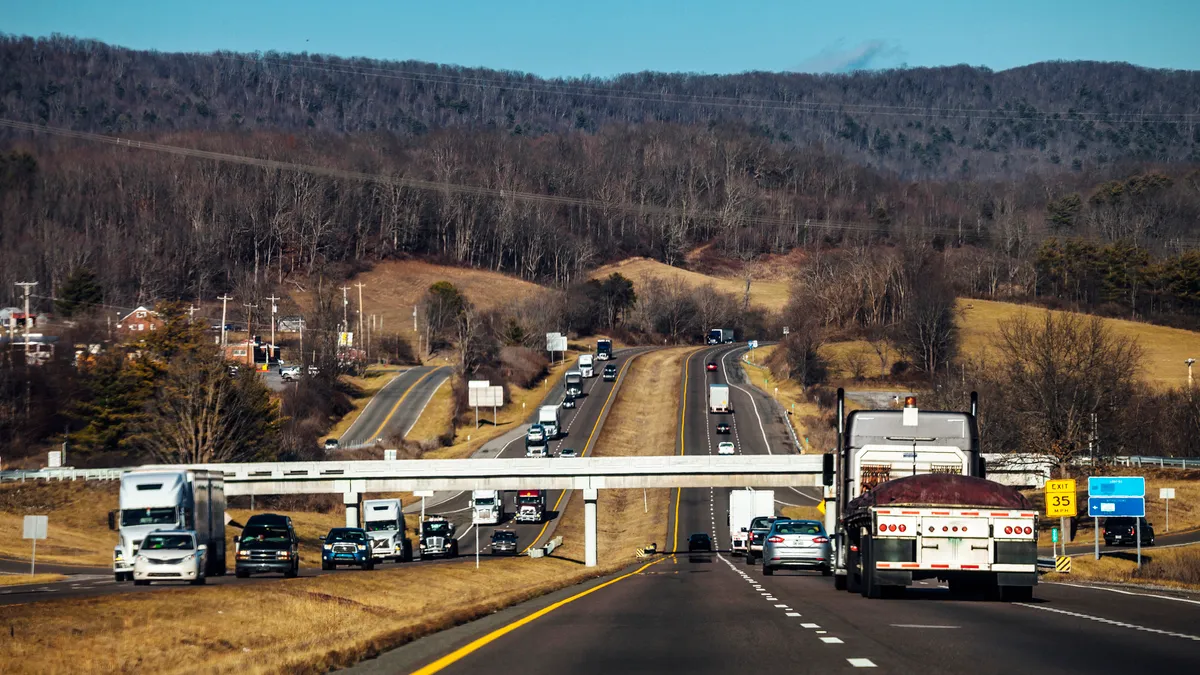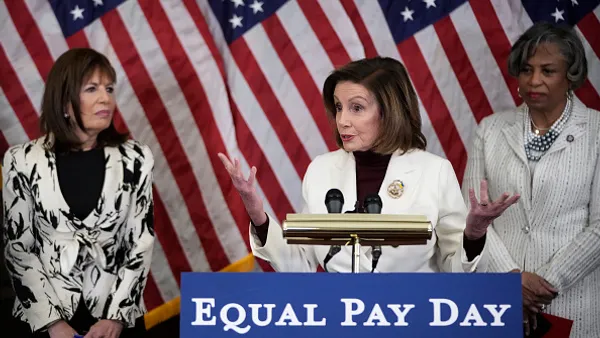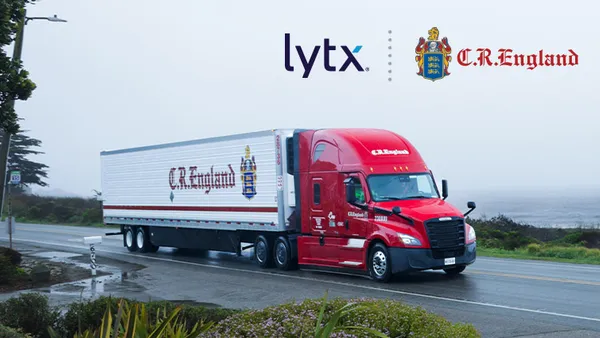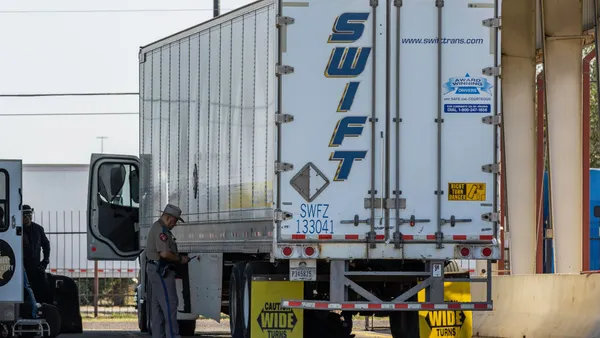The gleaming steel machines of the highway were fascinating to kids.
"When I was a kid, truck drivers were the knights of the highway," Dennis Dellinger, chairman of the Truckload Carriers Association and CEO of Cargo Transporters, told me.
And Hollywood saw an opportunity in the truckers' stories. The 1970s gave way to heroic fighters against injustice in "Smokey and the Bandit" and "Breaker! Breaker!"
But decades later, the story has switched gears.
ABC's "Big Sky" is a series about a trucker turned serial killer. It has drawn a rebuke from trucking officials who are concerned it could give a bad image to trucking and driver recruitment.
"Big Sky" is a sign the media has switched gears to use truck drivers as villains, Dellinger told me — and a reminder that truckers have become an easy target of derision for Hollywood, something once unthinkable.
"When I was a kid, truck drivers were the knights of the highway."

Dennis Dellinger
CEO of Cargo Transporters
"It's a hard job and the industry is struggling to get new drivers, so portraying them as kidnappers and rapists does no one any good at all," Susan Fall, president of LaunchIt Public Relations, told me in an email. Fall has served on the boards of several industry groups, including Trucker Buddy International, Women In Trucking and the Truckload Carriers Association's Communications and Image committee.
The portrayal of a driver as a murderous kidnapper brutalizing women, and of truck stops as centers of prostitution and human trafficking, set off alarms at the American Trucking Associations. It minced no words in how it felt about the portrayal.
"This representation is offensive, inaccurate, tasteless, ill-timed, tone deaf and shameful," the ATA said on its blog.
On screen, knights no more
ATA fired off a Nov. 4 letter to Disney's ABC network to protest the kickoff of the series. In a Nov. 13 blog, ATA officials said many Americans' understanding of truckers "is limited to what they see in mass media. 'Big Sky' leaves an impression that is unflattering, untrue and unwarranted."
The change in portrayal has unsettled the industry after months of essential goods transport and just before the holidays, as many drivers work long hours to supply retailers and warehouses. Dellinger said the industry hoped to capitalize on the goodwill it accrued through the pandemic, and perhaps turn a corner on its image problems, which also come during the industry's troubles recruiting new or younger drivers to haul loads over long runs.
"We've got [drivers] on the road 365 days a year," said Dellinger. "These people sacrifice a lot."
"For whatever reason, the truck driver has become the easy target."

Susan Fall
President of LaunchIt Public Relations
ATA asked not for ABC to pull the series but for free airtime to run advertisements "that fairly represent truckers and educate viewers about what the industry is doing to combat human trafficking through Truckers Against Trafficking."
ABC did not respond to a request for comment.
Combating the Hollywood stereotypes
Hollywood has been using truckers as go-to bad guys long before "Big Sky" premiered. Even in science-fiction films, truckers get portrayed as bad people. A few examples:
- In the 1984 film "Supergirl," the first two people on Earth that Supergirl encounters are truckers. The two men immediately try to assault her.
- In the 1997 film "Breakdown," with Kurt Russell, a trucker leads a murderous ring of kidnappers who stalk the highways for victims.
- In "Smokey and the Bandit," the 1977 hit film about a beer run in the South, the trucker — an antihero much like Burt Reynolds' character — is portrayed as a scofflaw, albeit a friendly one.
"For whatever reason, the truck driver has become the easy target," said Fall. "The truck driver as the easy-target villain needs to stop."
It's perhaps rarer for the industry to see truckers portrayed as helpful and friendly, as in Coca-Cola's latest Christmas ad, which shows a trucker drive a father, stuck at the North Pole, home. The trucker turns out to be none other than Santa Claus.
Royal Jones, president and CEO of Mesilla Valley Transportation, said part of the problem are the few bad apples within an industry. But in that respect, trucking should not be singled out. Hollywood focuses on the bad actors to make sensational films and TV, Jones said.
"They always do, that's their job," Jones told me.
"We have lots of good stories."

Royal Jones
CEO of Mesilla Valley Transportation
Jones said he has more trucks than drivers right now at his New Mexico-based TL firm. He is eager to recruit more, and tells stories of their hard work and rewarding careers.
One man, Jones said, didn't want to remain in college and became a driver. Through hard work and dedication, the driver recently won a company award that earned him a new personal vehicle. Jones said other drivers work hard in the face of unrelenting consumer demand during the ongoing pandemic.
"We sure don't need any more negative stuff out there," said Jones. "We have lots of good stories."
Fall said the industry has to do a better job of telling these positive stories, including the fight against human trafficking and the industry's ability to give workers a good career.
The PR battle will mean all hands on deck.
"Not just the leaders," Fall said. "Anyone who is involved with it. Brokers, drivers, dispatchers shippers."
The PR battle will mean all hands on deck.

Fall's image committee establishes programs that recognize drivers who "went above and beyond," Fall said. The committee honors truck drivers who have saved a life, or found a wandering child, or protected a downed motorcyclist by establishing flares on the ground. Fall said image is an important part of any industry, and negative images make recruiting harder. It means a serious effort of storytelling is needed.
"I think we combat stereotypes ... by doing a better job of showcasing all the good things drivers do," said Fall. "The shows make people afraid ... That is so wrong."


